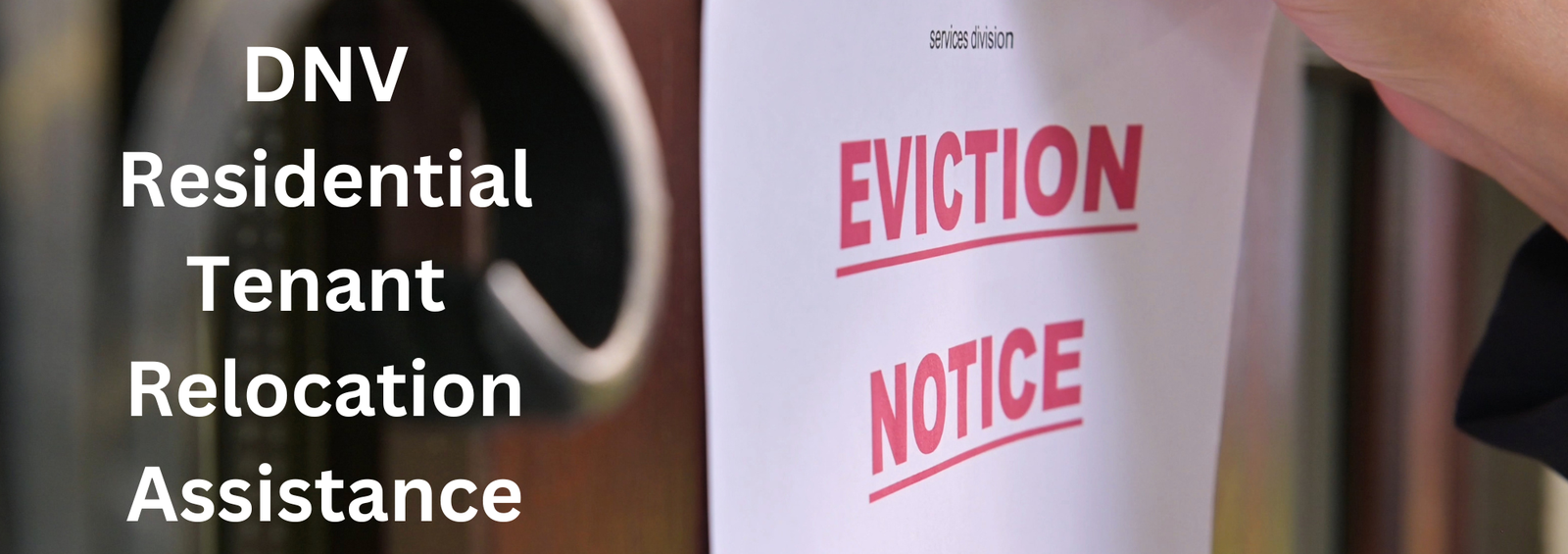
Full details on DNV website (here).
If you rent your home and you have to move because the building is being redeveloped, you may qualify for help under the Residential Tenant Relocation Assistance Policy. Our policy helps anyone who lives in a building (or group of buildings) with at least five rental homes, whether it's:
- a purpose-built rental building
- strata homes being rented
- rental homes within single family houses
What help you can expect from your landlord
If you need to move out of your rental home because the building is being redeveloped, your landlord will work with you to come up with an assistance package that suits your needs. This package may include different forms of help, depending on your situation.Help finding a new home
Finding a new home to rent can be challenging. Your landlord is expected to help you get a new rental by giving you a list of at least three available homes with rents close to what you pay now.Unless you specify otherwise, these three options should:- have the same number of bedrooms as your existing home
- be located within the District of North Vancouver
- have a maximum rent of no more than 10% above your current rent or 10% above the median rent level for Metro Vancouver, whichever is greater (if there are no similar-priced units available, then they should provide units that are closest to that price)
- meet any other specific needs or preferences you identify
Financial support
Whether you have to move permanently, or just for a while until a new building is constructed, you may be eligible to receive:- 4 months' free rent
- an additional $35 for each month that you rented your apartment
Help with your moving expenses
Moving can be expensive. Your landlord should help you with moving costs by providing a flat rate fee. The amount you could receive depends on the type of home you currently rent:- $1,000 for studio and one bedroom homes
- $1,250 for two bedroom homes
- $1,500 for three bedroom homes
Opportunity to rent in the new building
If you have to move because your landlord is building a new rental building, you should get the right to rent a home in the new building. If below-market rental homes are available, you would be required to meet any eligibility criteria (for instance, household income) if you wanted one of these.Opportunity to purchase a new home
If you have to move because your landlord is building a new strata building, you should get the right to purchase a home in the new building with a 5% discount.Additional help with your move
Your landlord should hire or appoint an experienced tenant relocation coordinator to communicate with you, help you find alternative housing, and implement the tenant assistance package your landlord offers.The tenant relocation coordinator should be available during regular hours by phone and email, and their contact information should be posted in your building where it is easy to find. If you speak a language other than English, the coordinator should try to make information available to you in your preferred language.How to get help from your landlord
It's your landlord's responsibility to work with everyone in your building to make sure you are all getting the help you need.Your landlord will ask you to fill out a Tenant Household Needs Assessment Form.You are not required to complete the form, but we highly recommend that you do to make sure your housing needs are met.When to expect any financial compensation
Your landlord is required to apply to have the property rezoned before the building can be redeveloped. Once the rezoning application is approved, your financial compensation becomes payable, and you should receive it before you move out.If you decide to move out before the rezoning is approved, make sure the tenant relocation coordinator has your current contact details (mailing address, email, phone number) so they can get you your compensation when it becomes available.Where to find additional help and support
Receiving your financial compensation
Your landlord will sign a legal agreement with us, and commit to providing help. If you believe your landlord will not follow up with the commitment to help you, please contact us.Understanding the relocation process and compensation
The tenant relocation coordinator hired by your landlord can answer any questions you have about the moving process, or the help you should receive. Contact information for the coordinator should be posted in your building somewhere that is easy to find.Understanding your rights and your landlord's responsibilities
- The Residential Tenancy Branch — Information, education, and dispute resolution services for landlords and tenants
- The Tenant Resource & Advisory Centre — Free legal education and referral services for BC tenants
- BC's Housing and Tenancy — Current legal information and online services regarding residential tenancies. The Residential Tenancy Act can be accessed here.
- PovNet — Online tools and public access to legal information about poverty and related issues, including housing
Information about area rents
The maximum rent you should be expected to pay when you move to a new home will be calculated by looking at median rents by bedroom type in Metro Vancouver. You can find these rents on the Canada Mortgage and Housing Corporation (CMHC) website.Other responsibilities for you and your landlord
Under the Residential Tenancy Act, after a planning application has been submitted, your landlord must ensure your home continues to comply with health, safety, and housing standards, and remains suitable to live in, taking into account the age, character, and location of the property. You are also responsible for maintaining reasonable health, cleanliness, and sanitary standards in your home.This information is supplied by District of North Vancouver website. I make no claims to its accuracy and anyone using this information is expected to do their full due diligence including communicating with the District of North Vancouver and their other recommended sources.